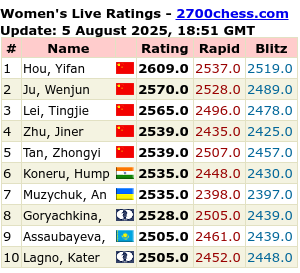Introduction
Since I was little, I have always struggled to remember names. They simply do not stick for me. Even after I have presumably mastered someone’s name, having known it for a year or more without fail, I only need a few months for it to fall out of mind again.
The problem is: this phenomenon is not confined to names. I have spent around ten years acquiring post-secondary degrees, and yet my recollection of facts learned during that time is spotty at best. Certain features seem to stick, but I cannot for the life of me recall much detail after a certain amount of time. Those topics I continue to engage with remain, but everything else falls away much like uranium decays into lead.
Thankfully, my fate is not sealed, at least not according to Boris Dresler and Boris Nikolai Konrad. When they scanned the brains of 23 world-class memorizers and compared them with 23 ordinary folks, they found little to no difference between them. What this suggests is that anyone can train their memories to superhuman levels. Perhaps even someone like me can succeed!
I am going to put these questions to the test: Can a person who struggles to remember things learn to memorize more efficiently and effectively? Will I be able to improve my short- and long-term memory abilities by adopting the techniques of memory athletes? What techniques will be most effective?
To test these, I will document my progress, starting by documenting a baseline of my abilities and recording my progress each following week. While the experiment will be far from scientifically rigorous, since the way I measure progress will probably evolve over time, documenting the journey will provide some useful qualitative markers of what it’s like to learn how to memorize.
Baseline
Finding the tests to try took some time, but I came up with three. The first two come from an article devoted to mental fitness. The last one I made up after reading through a few posts from a website devoted to memory athletics.
Test #1:
I started with a short term memory test based on letters. The screen provided a series of letters for a period of three seconds, increasing the number I needed to memorize with each consecutive trial. After looking at them for three seconds I had to record the ones I remembered.
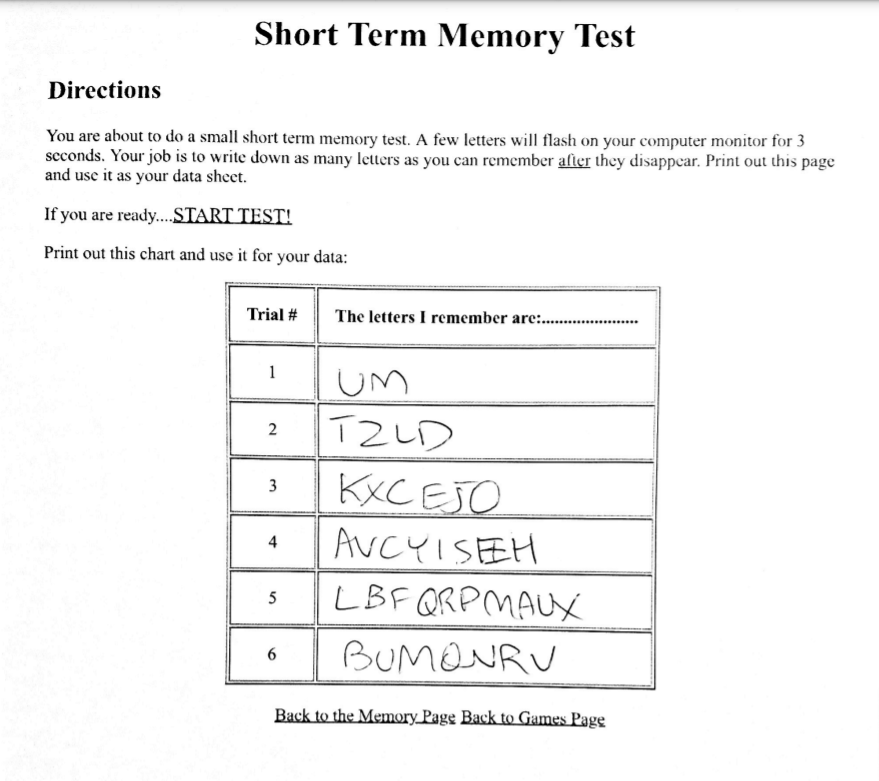
I managed to recall 100% of the letters up to ten letters, but the twelve-letter trial confounded my abilities. For some reason I recalled the last seven instead of the first five.
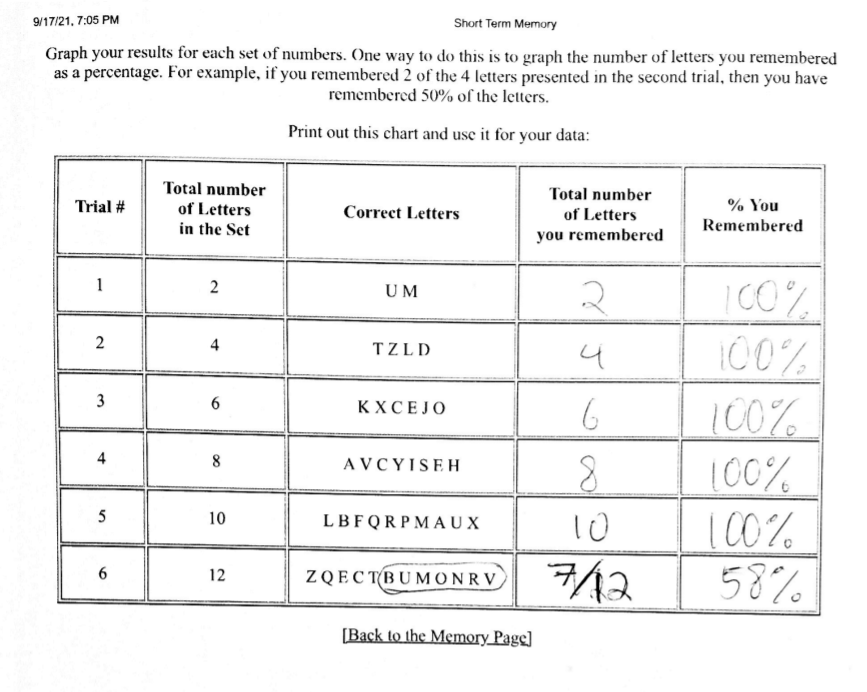
Test #2:
Next I tried a picture-based quiz, which tests your ability to recall a page of images after thirty seconds of viewing. With twenty images in total, I only managed to recall four. The experience was familiar. I locked up and felt unable to concentrate on the images or place them in my memory. Needless to say, I performed terribly!

Test #3:
Finally, I tried to see how long it might take me to memorize a short, beginner poem without any training. For some this might be an easy task, but I struggled to concentrate (I was trying to memorize after a long day of studying). Thankfully I managed to memorize the text to a rough level in 14 minutes, 41 seconds, and 10 milliseconds.
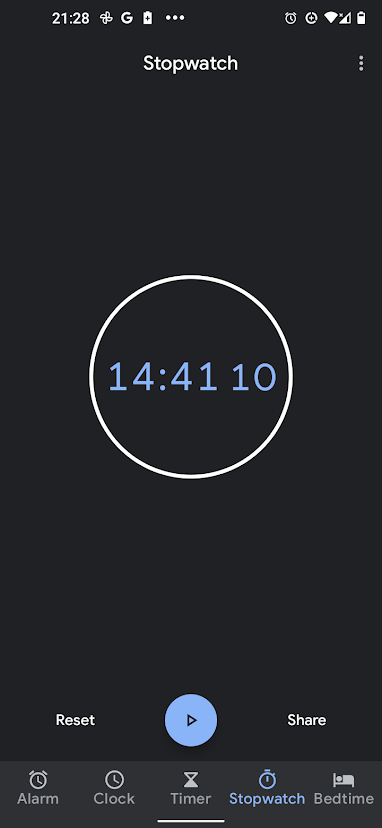
The poem was easier to reproduce in writing than by recitation. The punctuation is probably wrong, but the wording seems correct. What was most difficult were the middle stanzas. The last one took the least amount of time, perhaps because of the repeating lines. I seem to struggle with long sentences more.
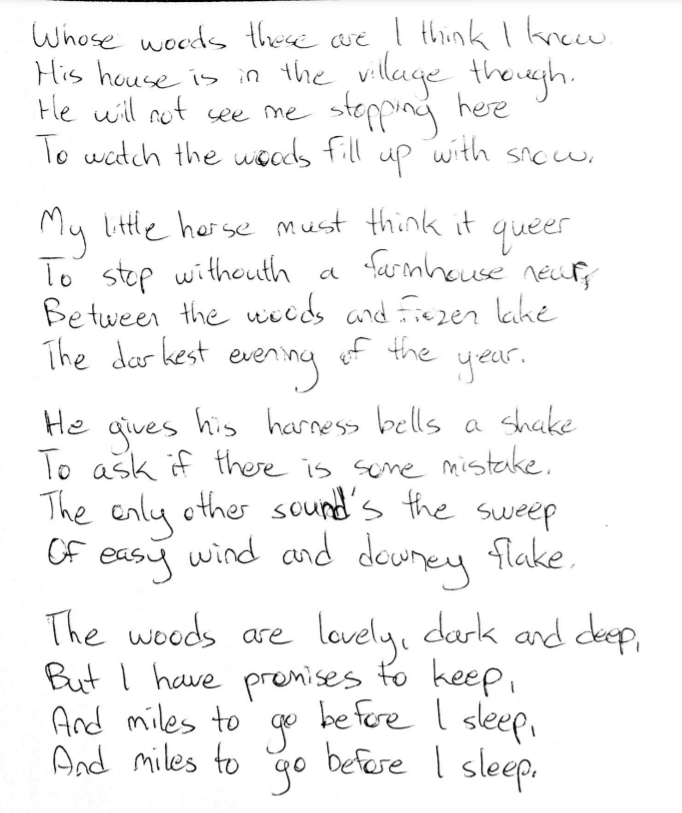
Techniques
Over the course of this semester, I plan to look into the following memory techniques and put them to the test with poetry and other feats:

